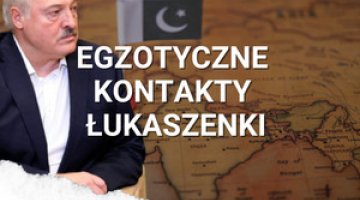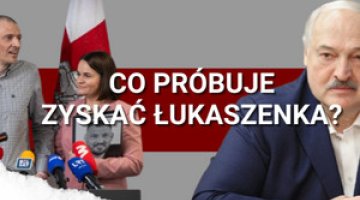Abolition of Polish education in Belarus
On 19 May the management of a Polish secondary school in Grodno informed the parents of its pupils that, as of the new school year, Russian and Belarusian will replace Polish as the languages used in classes. A similar solution is also to be implemented in another Polish institution – the secondary school in Volkovysk. Despite years of efforts, the Polish minority of 287,000 people (according to the 2019 census) had only these two centres, built back in the 1990s with Polish funds. The changes stem from an amendment to the Education Act, approved by Alexander Lukashenka in January this year, which (Article 82) does not provide for education in the language of national minorities. However, since the beginning of April, when school authorities signalled their intention to remove Polish from teaching, parents of pupils have been making efforts to preserve Polish language and literature classes at the level of at least one hour a week for each of these subjects. Under the new regulations, this will be possible subject to the approval of the local authorities and the Ministry of Education. So far, however, no positive decision has been obtained, so it is likely that students will have no form of teaching in their mother tongue. This is indicated by a message from the Belarusian Ministry of Education, which maintains that everything is being done in accordance with current legislation.
Commentary
- The phasing out of the Polish language from education is part of Minsk’s long-term policy towards the Polish minority. Since 2005, two Polish schools have been under constant pressure from the Lukashenka regime. The primary is the Russification of the young generation of Belarusian Poles, which is intended to result in the eradication of Polishness from social life. This is accompanied by constant repression, albeit of varying intensity, against Polish minority organisations, in particular, the unrecognised Union of Poles in Belarus. Its president, Andżelika Borys, has been in custody since March 2021, accused of inciting ethnic hatred and rehabilitating Nazism (in March this year she was allowed to serve her sentence under house arrest). Her deputy Andrzej Poczobut, who faces the same unfounded charges, has been in custody for several months. Since the rigged presidential election in August 2020, Poland has become one of the main enemies in the regime’s narrative. This is also manifested in blaming the Polish underground for alleged crimes against the Belarusian population during and after World War II. Furthermore, Minsk is increasingly copying the Russian point of view – glorifying the Soviet period in history, and in particular the joint military effort during the Great Patriotic War, which is reflected in the new version of the Constitution (Article 15), adopted in a rigged referendum on 27 February this year.
- Removing the possibility to teach in Polish in Belarus is contrary to Article 50 of Belarusian Basic Law, which guarantees national minorities the right to choose their own language in education. It also violates the commitments adopted by Minsk in the Polish-Belarusian agreement on cooperation in the field of education, signed on 20 July 2016, which provides conditions for the Polish minority to be educated in their mother tongue and to learn it (Article 8). By implementing the amended Education Act, the regime is reaching for the most disadvantageous solution for this minority, leading to a complete de-Polonisation of teaching in Polish schools. Minsk’s aim is therefore to de facto eliminate the Polish status of the Volkovysk and Hrodna schools this year. The regime’s uncompromising stance is a reaction to Warsaw’s unambiguously critical attitude to the violations of human rights and democratic principles in Belarus. It is also the result of Belarus’s close political and military cooperation with Russia.
- As a result of Lukashenka’s anti-Polish campaign, non-public educational institutions teaching the Polish language are also being subjected to repression. The pressure on independent education intensified in March 2021, when the prosecutor’s office – on charges of allegedly glorifying the ‘crimes’ of the Polish underground against the Belarusian population in the post-war years – conducted a series of inspections in some of the 120 private entities (community and commercial schools) providing education in Polish in the country. Both the curricula and pupils’ lists were checked; this was aimed at discouraging people from learning Polish. Representatives of the government, including the then Minister of Education Ihar Karpienka, made no secret of their intention to inspect and then close down most private schools of the Polish language, which the regime perceives as “centres for the propagation of a colour revolution”. So far, at least 23 such establishments have been closed down. Moreover, it is likely that later this year the Licensing Act being debated in Parliament will tighten the rules for private (social and commercial) entities to obtain licences for educational activities.





